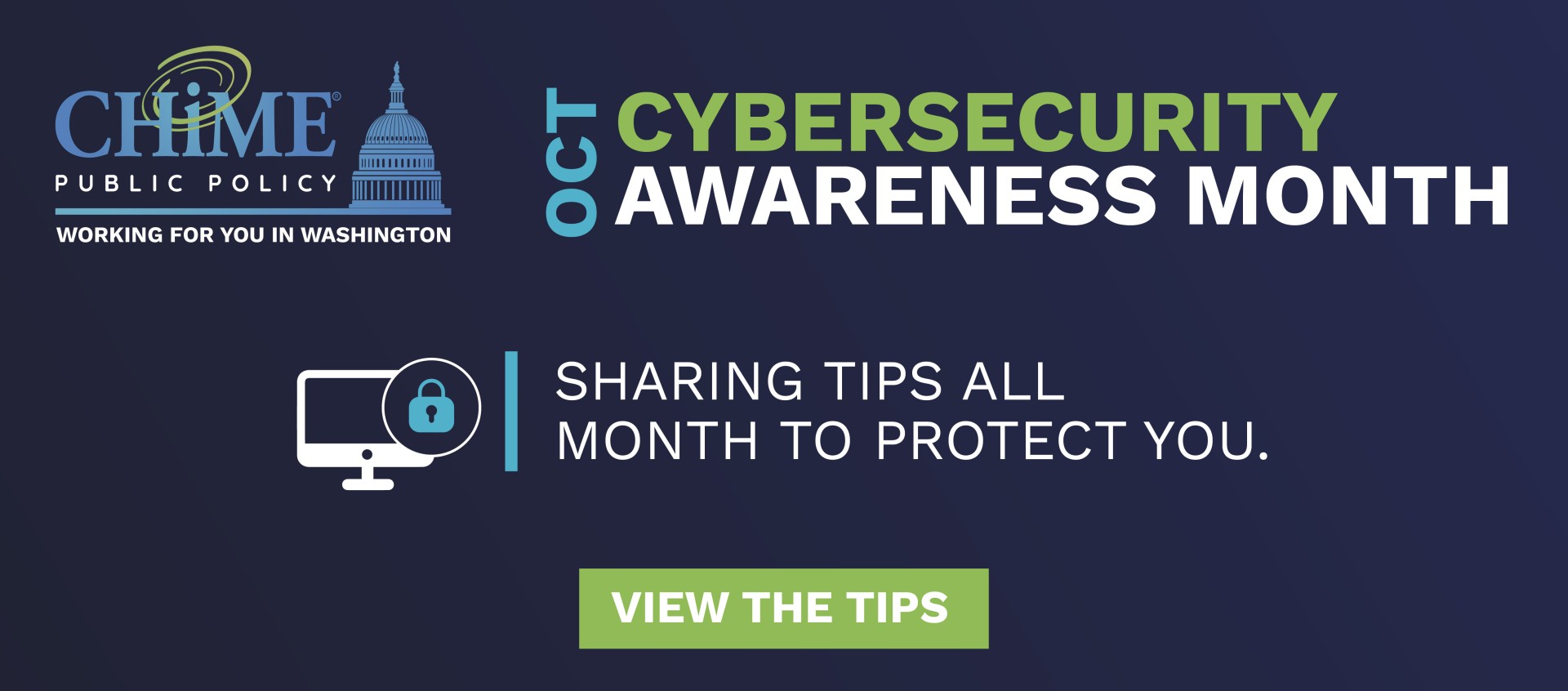
CHIME ENCOURAGES ITS MEMBERS TO #BECYBERSMART DURING CYBERSECURITY AWARENESS MONTH
Do Your Part. #BeCyberSmart!
Protecting patient data is more important than ever before with healthcare remaining squarely in the crosshairs of hackers and ransomware actors worldwide. Just as you would with the access points to your facility, it’s crucial to ensure your network and technology vulnerabilities are accounted for and properly mitigated.
You wouldn’t want someone you’re unable to identify rifling through your ER filing cabinet, so you want to make sure they aren’t able to do it through your virtual one.
These ever-present cyber-challenges are why CHIME is proud to be participating in Cybersecurity Awareness Month, helping our members understand the importance of sound cybersecurity practices and how to #BeCyberSmart!
Top 10 Cybersecurity Best Practices
To kick off the month we are sharing the top 10 best cybersecurity practices all healthcare organizations can implement to #BeCyberSmart, taken from the 405(d) Task Group’s Health Industry Cybersecurity Practices: Managing Threats and Protecting Patients (HICP) publication. Those practices include:
- Implement E-mail Protection Systems to Protect Against Phishing and Malware
- Protect Hardware Device Endpoints
- Implement Identity and Access Management to Verify Users on Your Network
- Implement Data Protection Practices to Help Prevent Loss, Corruption or Theft
- Utilize IT Asset Management (ITAM) to Maintain Cyber Hygiene Controls
- Implement Proper Network Management Protections
- Utilize Vulnerability Management Processes to Detect Technology Exploits
- Implement Incident Response Practices to Detect and Prevent Cyberattacks
- Include Medical Device Security as Part of Cybersecurity Response Planning
- Establish, Implement and Follow Cybersecurity Policies, Procedures and Processes
Other Activities to Participate in This Month
This is only the start of CHIME’s planned activities for the month of October. We will be highlighting tips and best practices from the Cybersecurity and Infrastructure Security Agency (CISA), the U.S. Department of Health & Human Services (HHS), and the National Cybersecurity Alliance (NCSA) throughout the month in our weekly Washington Debrief publication. Not receiving the Washington Debrief? Contact us at [email protected] to get signed up.
Also be sure to register and reserve your spot in our webinar on “Voluntary Cybersecurity Best Practices: 405(d). What are they, why is congress supporting them, and why will they become increasingly important?” with 405(d) Task Group co-chairs Erik Decker from Intermountain Healthcare and Julie Chua from HHS on Oct 14.
Also make sure you’re following us on both Twitter and LinkedIn where we’ll be sharing more tips and best practices all month.
RETURN TO CHIME MEDIA
